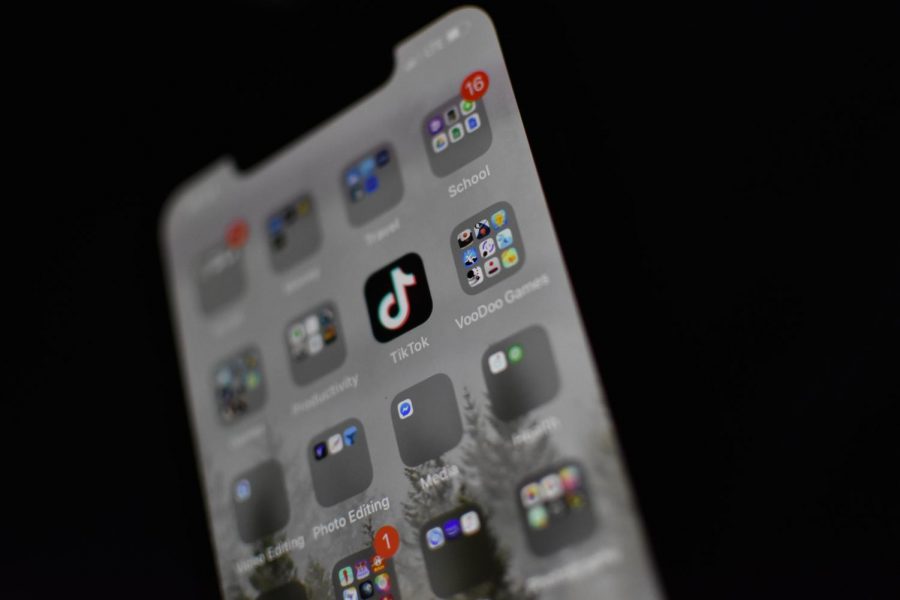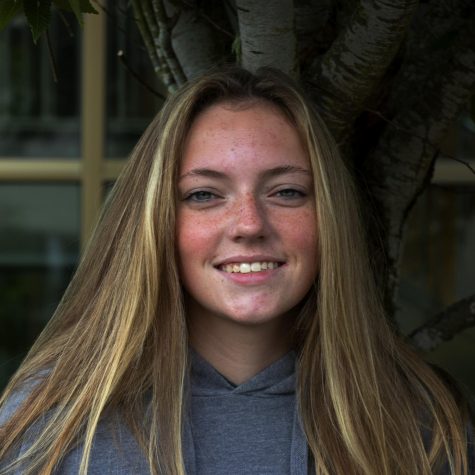“Tik Tok:” Is It Really Safe?
TIK TOK: THE SEQUEL TO FACEBOOK? Investigations begin around the world on the popular app Tik Tok as the privacy of the app is called into question by the masses.
December 2, 2019
“Tik Tok.” The two words mean many different things to different people. For some, it is an escape to another world. For others, it is a way of life, a way to make money. In older generations, it is a symbol of how far the younger generation has fallen from their real-life interactions. Even with all it’s fame, some do not know what “Tik Tok” even is. “Tik Tok” is currently the number four most downloaded app over both Apple and Android with over a billion downloads. However, according to CNBC, only about 500 million of those users are active, 60 percent of which are between the ages of 16 and 24. The app itself consists of 10-15 second videos in which the poster will lip-sync or dance to the beat of a song.
With so many users, of which many are young, it comes as no surprise that some parents are concerned about the safety of the app through public interactions. Rightfully so, as according to CBS, some rather dangerous organizations have used the app for propaganda such as ISIS, a radical terrorist state based in the middle east. ISIS posted videos of them beheading people, as well as torture and other unsavory acts. Although the 24 terrorist accounts were promptly banned, it raised questions on the safety of the app for younger audiences.
“Tik Tok” is owned by the Chinese company ByteDance. This was worrisome for both the U.S. and UK governments as they believe that ByteDance is sharing teenagers’ data with the Chinese government. If the investigations find anything, the result could be a regional ban in either country, resulting in millions of lost users for “Tik Tok.” In addition to these investigations, “Tik Tok” got fined $5.7 million by the Federal Trade Commission for breaking child privacy rights.
In order for “Tik Tok” to operate in China, ByteDance needs to follow China’s strict censorship policy. However, this also includes censoring the Hong Kong protests, a humanitarian effort in China against an unjust government. These issues raise the question of whether or not apps should be able to censor what they want. Junior Ryan Garcia says, “Yes, if it keeps the public safe.” Although some acts respect this, there are many who will abuse their power to censor for personal gain. This practice is against a fundamental human right, the right to freedom of speech.
It is no secret that the apps you use, and the things that you lookup are no secret. Companies will sell this data to other companies all the time. Everything you do online is logged and often sold (Chorn). Senior Adrian Boskovic said that selling data is “just kind of a part of the internet.” Most people do not give much thought to the large dossiers that companies hold on people, or the fact that major companies can know so much about you without ever having to meet you. “It is a little inquisitive,” said freshman Sarah Klinger, when discussing the dossiers. “Tik Tok,” of course, is no different. They still sell others data, and that is not so much the part that is the subject of the investigations. It is instead the fact that they are selling the data to foreign governments, allowing them to learn more about the country and how it works.
All of these issues beg the question, in the future, will anything be private? As we are developing as a species, we are becoming more and more reliant on technology. That technology is, of course, being constantly monitored and that data is being sold to other companies for marketing purposes. Privacy is slowly becoming obsolete as companies use people’s private data to help people live more personable, comfortable lives. Sophomore Seth Anderson chose “comfortability” when asked which of the two he preferred. However, he was still not entirely comfortable with the idea of his data being shared.




peter • Dec 5, 2019 at 10:06 pm
ok hi everyone im peter from issaquah high school, and i just moved here from china in three months and im from china adn umm we use tik tok in china a lot, we dont call tik tok in china and umm its called 抖音 (douyin)and i think it is really good i dont think its unsafe cuz we dont post private so yeah………….